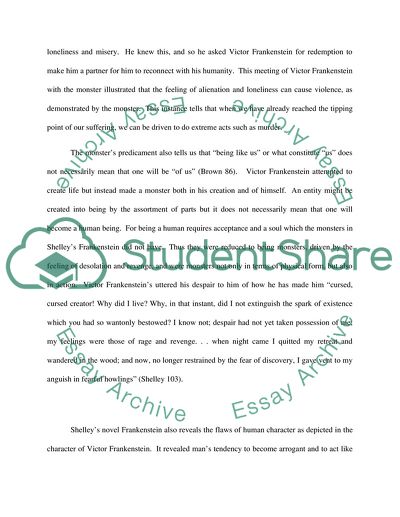Cite this document
(“The Role of Violence and Suffering in the Novel Frankenstein Essay”, n.d.)
Retrieved from https://studentshare.org/literature/1584609-the-role-of-violence-and-suffering-in-the-novel-frankenstein
Retrieved from https://studentshare.org/literature/1584609-the-role-of-violence-and-suffering-in-the-novel-frankenstein
(The Role of Violence and Suffering in the Novel Frankenstein Essay)
https://studentshare.org/literature/1584609-the-role-of-violence-and-suffering-in-the-novel-frankenstein.
https://studentshare.org/literature/1584609-the-role-of-violence-and-suffering-in-the-novel-frankenstein.
“The Role of Violence and Suffering in the Novel Frankenstein Essay”, n.d. https://studentshare.org/literature/1584609-the-role-of-violence-and-suffering-in-the-novel-frankenstein.


